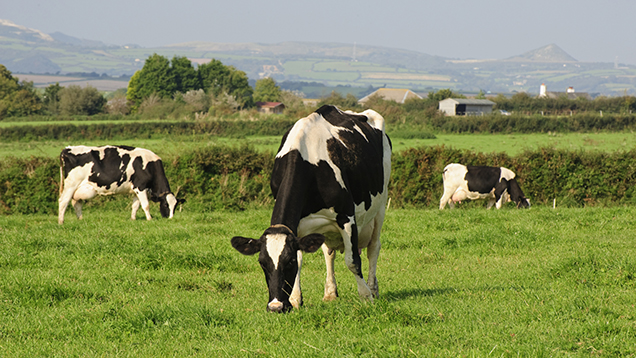Vet Viewpoint: Wet summer leads to spike in lungworm risk
 ©John Eveson/FLPA/Image Broker/Rex Shutterstock
©John Eveson/FLPA/Image Broker/Rex Shutterstock In this round-up of livestock health issues from across the country representatives from XL Vet Group are warning farmers of the increased threat of lungworm as a result of the wet summer.
They advise producers to be alert to coughing cattle, which can be a sign of lungworm.
Farmers are also warned to be aware of the dangers of stress at weaning, and the vets are issuing guidance on the timing of vaccines to ensure their effectiveness and tips on how to deal with subclinical mastitis.
Ken Wilson, Donald S McGregor and Partners, Thurso, Scotland
Stress at weaning can predispose calves to bovine respiratory disease (BRD).
Vaccination can be used to significantly reduce the incidence of BRD, so discuss vaccine choice with your vet.
It is possible to tailor vaccination protocols to your farms’ specification according to the history of disease and following diagnostic tests.
See also: Sheep tapeworm can reach 6m long
Timing and administering vaccinations correctly increases effectiveness.
Aim to vaccinate calves two to three weeks before the stress of weaning.
For those selling weaned suckled calves, there are commercial schemes available to help vendors market their vaccinated calves at sales. This can prove to be a commercial advantage to sellers and offers a confidence booster to buyers.
Rob Henderson, Midshire Veterinary Group, Nuneaton, Warwickshire
The past few weeks we have seen a growing number of reports of coughing in groups of yearling and adult beef cattle at grass, plus dairy farmers noticing coughing and milk drop in milkers.
At this time of year the likely diagnosis is lungworm, which can cause considerable production loss and death if untreated. Diagnosis can be confirmed by finding lungworm larvae in faecal samples.
Blood samples and bulk milk can be tested for antibodies that indicate recent infection.
Most of the commonly used wormers will kill lungworm, but dairy farmers will need to use a product with nil milk withdrawal to treat milkers.
Severely affected animals may require antibiotics and anti-inflammatory drugs at the time of worming.
Farmers should also discuss vaccination of youngstock before first turnout with their vet to help prevent problems.
Matthew Berriman, Rosevean Veterinary Practice, Penzance, Cornwall
Recently we have been helping herds achieve the highest band for milk quality ensuring they are receiving the best price.
Herds with high or increasing bulk somatic cell counts have many cows with chronic subclinical mastitis, which acts as a reservoir of infection for the rest of the herd.
Reducing the number of these cows is an important part of reducing bulk milk cell counts.
Chronic subclinical mastitis does not respond well to antibiotics during lactation.
The most effective treatments are drying off with the appropriate dry cow antibiotic, drying off infected quarters or culling.
Your vet can develop a set of treatment plans for chronically infected cows to suit your farm.
This ensures antibiotics are only used in appropriate cases and individual cows are treated in a way that will maximise the cure rate.
Richard Davies, Fenton Vets, Haverfordwest, Pembrokeshire
The recent drive to reduce costs following the cuts in milk price has led to greater use of grazed grass as a forage.
Although this is not new on most farms, some cows have had minimal exposure to worms in the past, especially in high-yielding systems.
We have also had a mild, wet summer which is ideal for worm proliferation on pasture.
The combination of a higher burden and a population low in natural immunity may precipitate an increase in lungworm infection in these adult herds, which are not usually under any worm treatment regimes.
Listen out for a mild, but persistent cough in the herd, especially during moving/handling.
Going untreated can lead to weeks of symptoms with a resultant milk drop.
Dung samples for lungworm larvae can confirm the cause, then treat accordingly.
